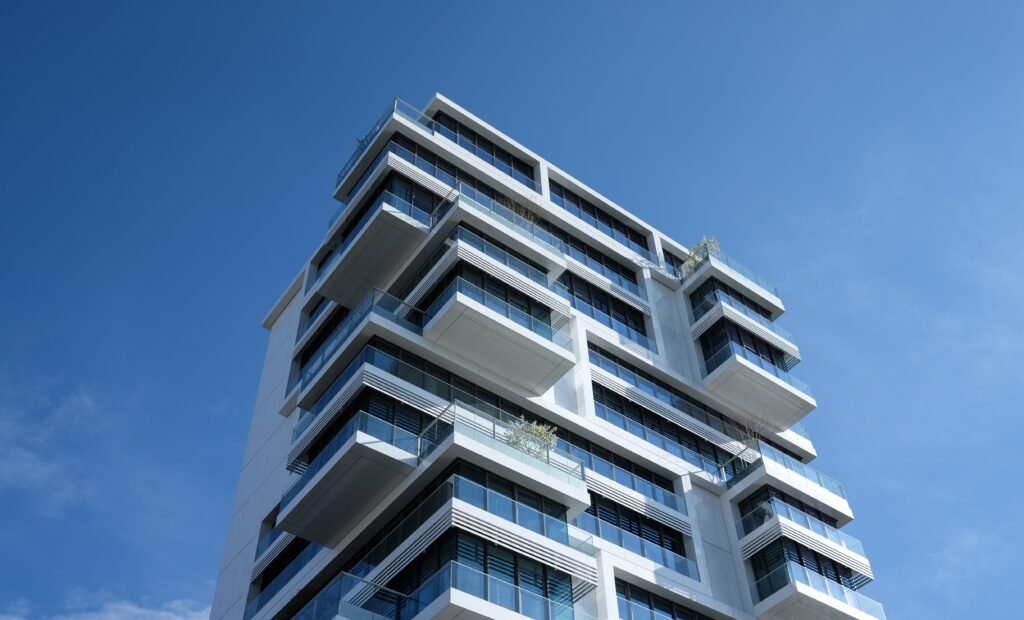Closing Costs for Pre-Construction Condos
Closing Costs For Pre-Construction Condos is additional expenses that buyers need to pay when purchasing a property. These costs are separate from the purchase price and can vary depending on the type of property and location. Closing costs are typically due on the closing date, which is when the ownership of the property is transferred to the buyer.Before diving into the details of closing costs, it is important to understand the concept of real estate closing. Closing is the final step in a real estate transaction where the buyer completes the purchase of the property and receives the title or ownership rights.


Understanding Closing Costs
Closing costs refer to the fees and expenses that buyers must pay when finalizing the purchase of a property. For pre-construction condos, these costs are typically higher due to additional fees associated with new construction. It’s essential to understand and budget for these costs to ensure a smooth and stress-free transaction.When investing in pre-construction condos, it’s important for buyers to be aware of the specific closing costs associated with the purchase. These costs are in addition to the purchase price and can significantly impact the total cost of the investment. By budgeting for these closing costs upfront, condo buyers and investors can avoid any financial surprises.

Types of Closing Costs for Pre-Construction Condos
1. Deposit: When purchasing a pre-construction condo, buyers are usually required to make a series of deposits. These deposits can range from 10% to 25% of the purchase price and are typically made at various stages of the construction process.
2. Development Charges: Development charges are fees imposed by the municipality to cover the cost of new infrastructure and services needed as a result of the new development. These charges can vary depending on the location and size of the condo unit.
3. Tarion Warranty Fee: In some provinces, such as Ontario, buyers of new construction homes and condos are required to pay a fee to the Tarion Warranty Corporation. This fee helps fund the mandatory warranty coverage for new homes and condos.
4. Legal Fees: Buyers will need to hire a real estate lawyer to handle the legal aspects of the purchase. Legal fees can vary but typically include services such as title searches, document preparation, and registering the transfer of ownership.
5. Land Transfer Tax: Similar to buying a resale property, buyers of pre-construction condos are subject to land transfer taxes. The amount of tax depends on the purchase price and the location of the condo.
6. Mortgage Insurance: If the down payment is less than 20% of the purchase price, buyers may need to pay for mortgage insurance. This insurance protects the lender in case of default and is typically added to the mortgage loan.

Budgeting for Closing Costs
- Given the various closing costs associated with pre-construction condos, it’s important for buyers to budget accordingly. Here are some tips to help budget for closing costs:
- Research and understand the specific closing costs applicable to the location and development.
- Set aside funds for the required deposits. Plan ahead and ensure you have enough liquidity to make these payments as they become due.
- Factor in the additional costs of development charges and the Tarion Warranty fee.
- Obtain quotes from different real estate lawyers to compare legal fees and ensure you have enough funds to cover this expense.
- Research and calculate the estimated land transfer tax based on the purchase price and location of the condo.
- If applicable, include the cost of mortgage insurance in your budget if your down payment is less than 20%.
- By budgeting for these closing costs in advance, buyers can avoid any financial surprises and ensure a smoother transaction. It’s important to work closely with a real estate agent and a financial advisor to understand all the costs associated with purchasing a pre-construction condo.
- Buying a pre-construction condo comes with its own set of closing costs that buyers need to be aware of. These costs are in addition to the purchase price and can significantly impact the total cost of the investment. By understanding and budgeting for these closing costs upfront, buyers can ensure they are financially prepared and avoid any unexpected financial burdens. It’s essential to conduct thorough research and work with professionals to navigate the complexities of closing costs for pre-construction condos.

Common Closing Costs for Pre-Construction Condos
When purchasing a pre-construction condo, it’s important to be aware of the various closing costs that you will be responsible for. These are additional expenses that go beyond the purchase price of the property. In this article, we will discuss some of the common closing costs associated with buying a pre-construction condo.
Development Charges
One of the significant closing costs for pre-construction condos is development charges. These charges cover the cost of infrastructure development in the area where the condo is being constructed. Development charges are typically paid by the developer, but in some cases, they may be passed on to the buyer. It is important to review the purchase agreement carefully to understand who will be responsible for these charges.
Tarion Warranty Fee
Another closing cost that buyers need to be aware of is the Tarion warranty fee. The Tarion Warranty Corporation provides warranty protection for new homes in Ontario, including pre-construction condos. Buyers are required to pay a fee to the Tarion Warranty Corporation to avail of this protection. The fee contributes to the warranty coverage, which includes a one-year warranty for defects in workmanship and materials, a two-year warranty for designated major structural defects, and a seven-year warranty for major structural defects.
Legal Fees
Buyers of pre-construction condos also need to consider the legal fees associated with the purchase. It is recommended to hire a lawyer or notary who specializes in real estate law to handle the legal aspects of the transaction. The lawyer’s role involves conducting a title search, preparing and reviewing legal documents, facilitating the transfer of ownership, and registering the mortgage on the property. Legal fees may vary depending on the complexity of the transaction and the lawyer’s experience.
Land Transfer Tax
The land transfer tax is another cost to consider when buying a pre-construction condo. This tax is payable by the buyer and is based on the purchase price of the property. The amount of land transfer tax varies depending on the province or city where the condo is located. It is important to consult with a real estate professional or lawyer to understand the applicable land transfer tax rates and how they will affect your overall closing costs.
HST
Buyers of pre-construction condos in Ontario are also required to pay the Harmonized Sales Tax (HST) on the purchase price of the condo. The HST combines the federal Goods and Services Tax (GST) and the provincial sales tax into a single tax. The HST rate may vary depending on the province. It is crucial to factor in the HST when budgeting for your closing costs.

Additional Closing Costs to Consider
When purchasing a home, it’s important for buyers to be aware of the additional closing costs that may arise. While the down payment and mortgage are often the main financial considerations, there are several other expenses that buyers should budget for. These additional closing costs can vary depending on factors such as location, property type, and individual circumstances. Here are some key costs to consider:
Utility Connection Fees
Buyers may need to pay fees to connect utilities such as electricity, water, and gas. These fees can vary depending on the utility provider and the location of the property. It’s important to contact the utility companies in advance to understand the requirements and potential costs associated with connecting these services. By budgeting for utility connection fees, buyers can ensure a smooth transition into their new home without any service interruptions.
Moving Expenses
One often overlooked cost associated with buying a home is the expense of moving. Whether hiring professional movers or renting a moving truck, there will be costs involved. The exact cost will depend on factors such as the distance of the move, the volume of belongings, and any additional services required. It’s a good idea for buyers to obtain quotes from different moving companies and create a budget for these expenses.
Home Insurance
Buyers need to arrange for home insurance coverage before the closing date. Home insurance protects the homeowner and the lender in case of unforeseen events such as fire, theft, or natural disasters. The cost of home insurance can vary depending on factors such as the location of the property, the value of the home, and the coverage options chosen. It’s important for buyers to obtain multiple quotes from insurance providers and factor this cost into their overall budget.
Adjustments
As part of the closing process, buyers may need to reimburse the seller for prepaid property taxes or utility bills. These adjustments ensure that the expenses are divided fairly between the buyer and the seller, based on the time each party has owned the property. Buyers should review the closing documents carefully to understand the adjustments that need to be made and budget accordingly. It’s essential to work with a knowledgeable real estate agent or attorney to ensure these adjustments are accurately calculated.
Condo Association Fees
If purchasing a condominium, buyers may need to pay a portion of the condo association fees for the first month or quarter. Condo association fees cover the maintenance and management of common areas, amenities, and services. The exact amount of these fees can vary depending on factors such as the size of the condominium and the services provided. It’s important for buyers to review the condo association documents and understand the financial obligations associated with condo living.
By considering these additional closing costs, buyers can better prepare themselves for the financial responsibilities that come with buying a home. Proper budgeting and planning beforehand can help alleviate any surprises and ensure a smooth and successful home purchase. It’s always advisable to consult with a real estate professional or financial advisor for personalized advice related to closing costs and budgeting.

Tips for Managing Closing Costs
Managing closing costs is an important aspect of buying a pre-construction condo. These costs, which can vary depending on the specific property, can add up and contribute to the total amount you need to pay. To ensure a smooth and stress-free experience, here are some tips to help you manage your closing costs effectively.
1. Research and Understand Specific Closing Costs
Before purchasing a pre-construction condo, it’s crucial to research and understand the closing costs associated with the property. Different condos may have different closing costs, including legal fees, land transfer taxes, development charges, and more. By having a clear understanding of these costs, you can budget accordingly, avoiding any last-minute financial surprises.
2. Budget for Closing Costs
In addition to the purchase price of the condo, you need to budget for closing costs. These costs can range from 1% to 4% of the purchase price. By setting aside funds specifically for closing costs, you can ensure that you have enough money to cover these expenses without experiencing financial strain. It’s always better to overestimate your closing costs to be on the safe side.
3. Consult with a Real Estate Lawyer or Notary
Seeking legal advice is essential when dealing with closing costs. It’s highly recommended to consult with a real estate lawyer or notary to get a clear understanding of your obligations and the costs you are expected to cover. They can review the purchase agreement and help you navigate through the legal aspects, ensuring a smooth transaction.
4. Negotiate with the Developer
Consider negotiating with the developer to cover some of the closing costs as part of the purchase agreement. While it may not always be possible, some developers may be willing to offer incentives or assist with certain closing costs. Negotiating with the developer can help alleviate some of the financial burden associated with closing costs.
5. Plan Ahead and Save
To avoid any last-minute financial stress, it’s crucial to plan ahead and save for the closing costs. Start saving well in advance of the closing date, allowing yourself enough time to accumulate the necessary funds. By having a dedicated savings plan, you can ensure that you are financially prepared for the closing costs when the time comes.
Purchasing a pre-construction condo involves more than just the purchase price. It is essential to consider the additional closing costs associated with the transaction. Development charges, Tarion warranty fee, legal fees, land transfer tax, and HST are some of the common closing costs for pre-construction condos. By understanding and budgeting for these costs, buyers can avoid any surprises and ensure a smooth closing process.





